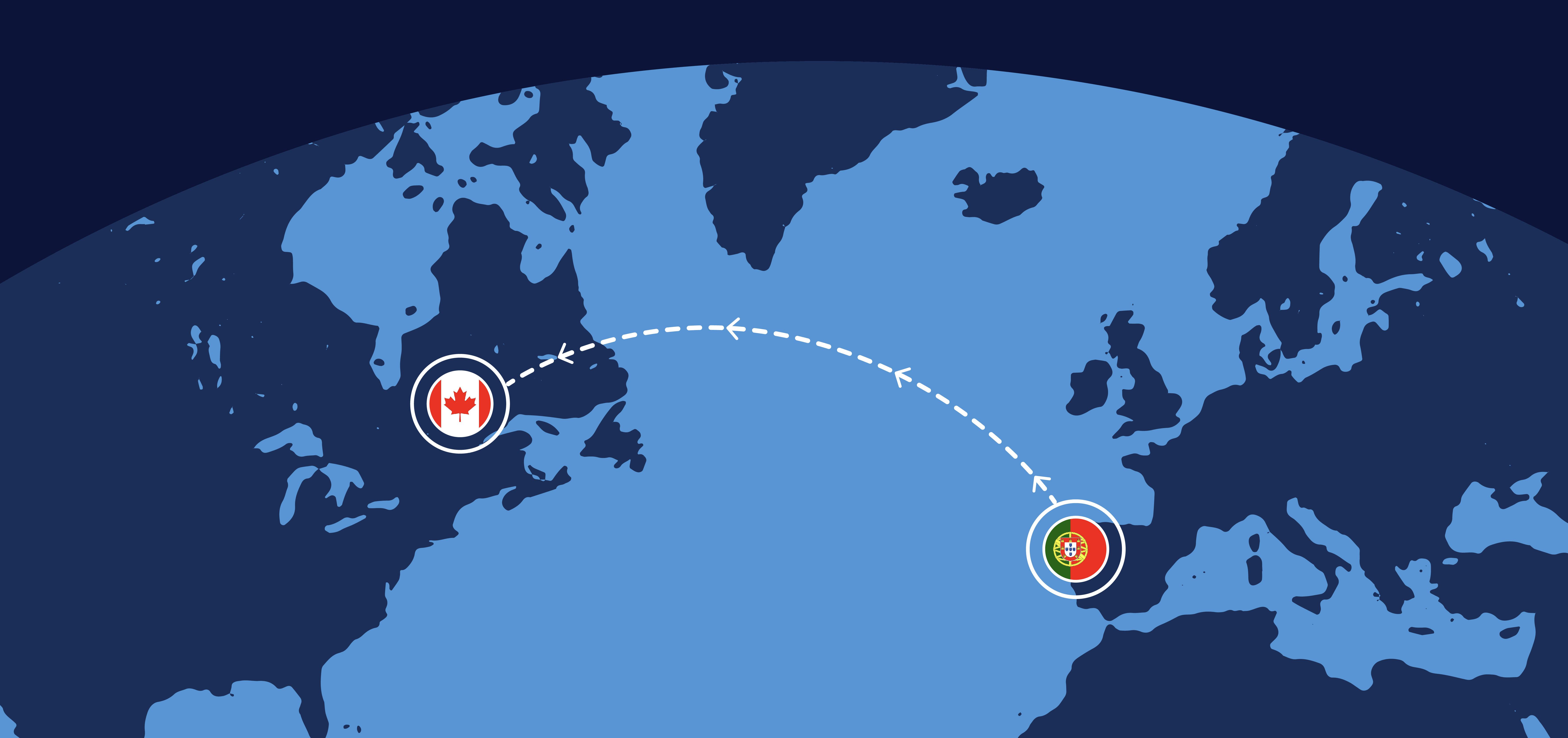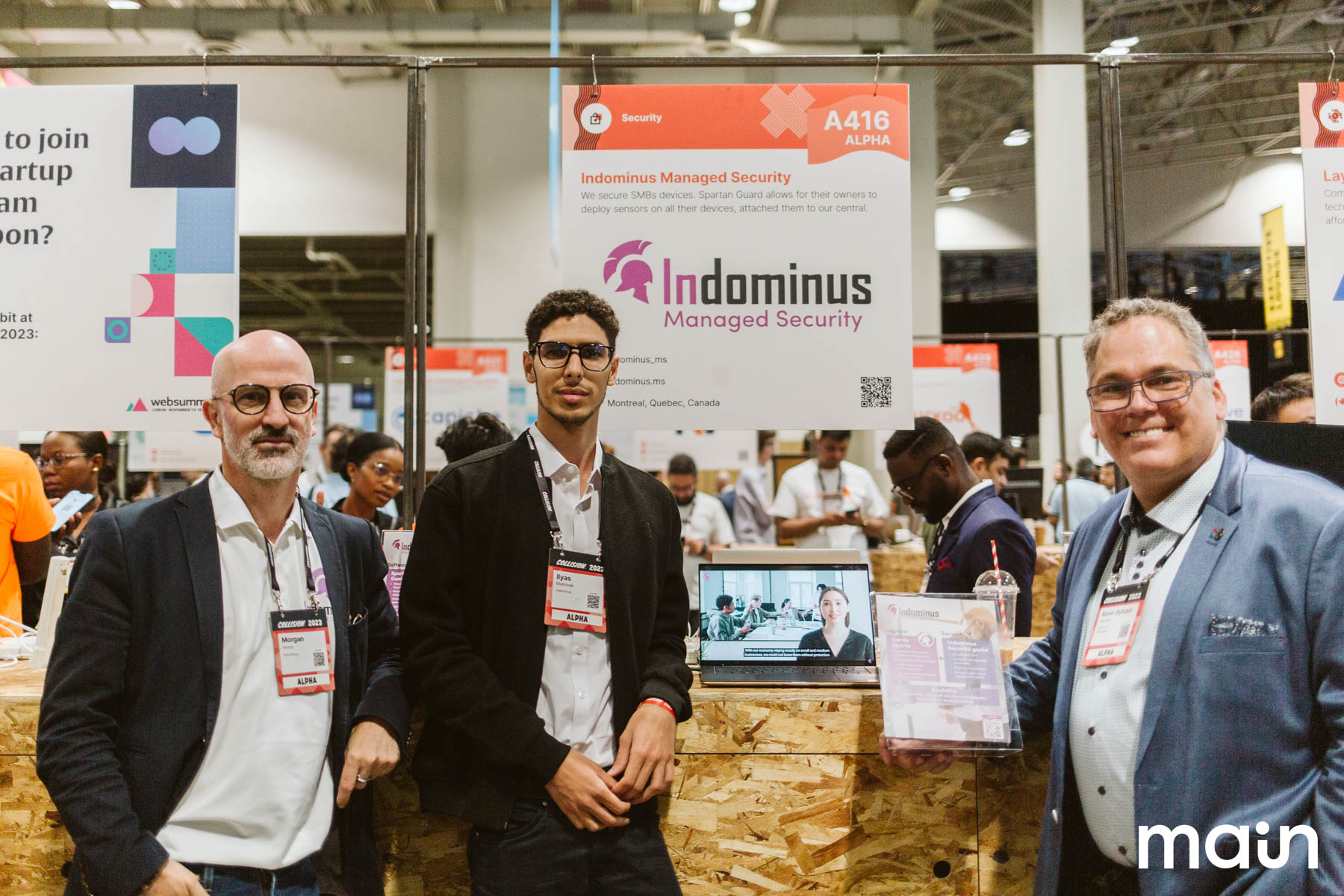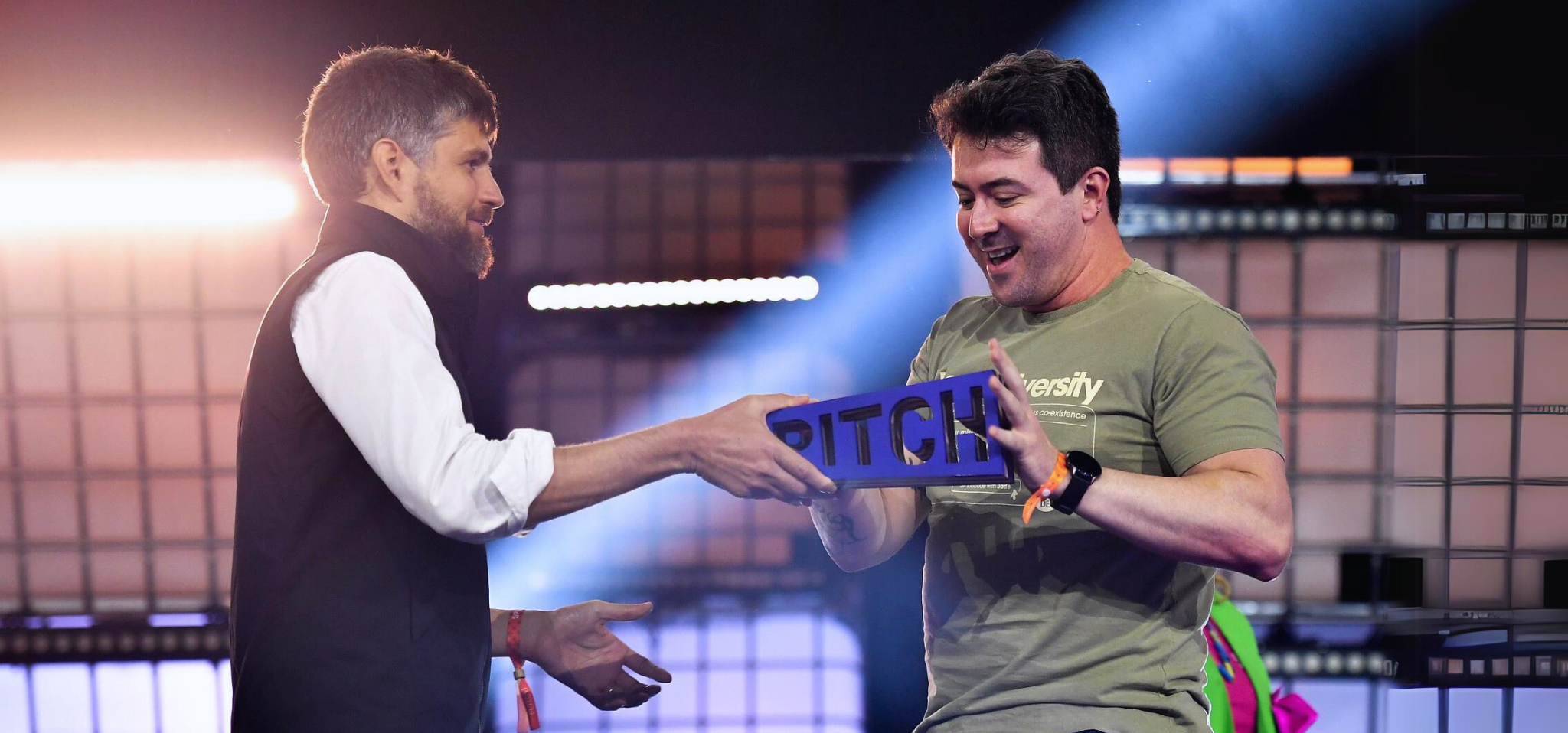
Startup Success: How Indominus got investor-ready

As part of our Startup Success series, we sat down with René-Sylvain Bédard to discuss the founder’s experience at our events.
Indominus Managed Security, and its product SpartanGuard, protects small- and medium-sized businesses from cyber attacks and malware, with a team dedicated to resolving security threats.
Company founder and CEO René-Sylvain Bédard first attended our Collision event in 2023, where a chance encounter with a leading industry figure led to joining an accelerator program, and working out issues with Indominus’ pitch deck.
Here’s what René-Sylvain had to say about our events.
What is your background, and what does your company do?
I’m an IT consultant by trade. I’ve been in the IT industry since 1995, and saw the rise of the Internet, virtualization, the cloud and recently AI come and transform IT in various waves. I eventually launched Indominus Consulting back in December 2017.
We had to do multiple incident responses, and we realized that cyber attacks were basically the equivalent of high school bullying, and we chose to do something about it. [So], we launched Indominus Managed Security in January 2023.
In April, we launched a product called SpartanGuard, which is a cybersecurity managed detection and response software. We say to our customers “We deploy smoke detectors on all your devices and if one of them goes off, we are the first responders. We make sure it doesn’t turn into a wildfire.”
How did you first learn about our event?
Back in 2018, our resident marketing consultant at the time, Sydney Wong, had already been there. She was part of our fundraising initiative.
We were building a product back then which never saw the light of day, but we were already planning to go to Collision with it. When we got our new product in 2023, the first thing we did was register for Collision, to show the world our new baby. So Collision 2023 was the first Canadian event for Indominus MS and Spartan Guard.
And how do our events compare to other events?
It’s interesting, tons and tons of really good content. Not enough time to see it all. I love the ALPHA model, because it actually did help us a lot to get in there.
What stage of development was the company at before you went to the event?
We had a minimum viable product, what we were missing was traction. That was where our pitch deck broke – at the traction level. We had to demonstrate customer interest for the product.
Who are some of the connections you made at the event?
We met one of the mentors of the Rogers’ Catalyst Cyber accelerator program, Eldon Sprickerhoff, and he basically explained to us why we had to do this program, and it made tons of sense. He basically became one of our mentors within the program. He’s the founder of eSentire, a very successfully-managed security service provider.
It’s so funny, because we were exhibiting and he just dropped by! You know, just passed in front of our stand and we began chatting, and he understood exactly what we were doing. You talk to 1,000 people but there’s about 900 that don’t have a clue about cybersecurity, or are not necessarily interested. But him, his face lit up. He understood exactly where we’re going, how we’re doing it, what our challenges were, and it was a breeze compared to others. It was a collision!
While we were there we also connected with the Microsoft team, who are great and who we’ve worked with. We also had some great connections with the Quebec booth. It was great to see the Quebec booth there so that was interesting. A lot of little contacts, but no new customers or investors unfortunately!
So how was your experience with the accelerator?
We graduated in December. It was an amazing journey. We learned a ton. It allowed us to get insights and totally rethink the way we were pitching. We had this great coach who actually (and I use this term) distilled my soul, because he was looking for the actual values of the company.
After Collision we’ve taken the time to make sure every single step of our customer journey was ironed out. By January we started selling, and now, we’ve done 10-times on the number of seats we’re serving, so we were actually on a very nice launching ramp.
Did attending the event have a positive impact on your business’ development? If so, what was the impact?
Yes, but it wasn’t necessarily the impact that I originally thought. So we went there originally, to find an investor. And as it turned out, we didn’t find an investor but we found the help we needed at the time that it was. As the song goes: “You don’t always get what you want, but just sometimes, you get what you need.”
I’m an IT architect. Imagine what my day looks like. I’m a technical guy. And so when I went to Collision I met one investor, and what I realized is that we had not prepared properly. We were barely speaking the same language.
First thing, we had no list of contacts to meet. Second thing, when I walked him through the deck, he looked at the deck and he said, ‘Okay, I’m not interested, bye,’ you know. Minimum feedback. It wasn’t great. But when I walked through my deck with the Roger’s Catalyst Cyber accelerator, the feedback would come and hit me in the head like two-by-fours, and then I understood why the other guy was not interested.
But also they told me where it broke, where the numbers did not work, like ‘That number has to be that number; you have to reach your first million.’ So then I can say, ‘Okay, you have to reach at least 3,000 devices in traction’ etc.
So that’s where, in an event like Collision, you don’t actually have time to start learning. You have to go in there and actually know what you want, but also know what’s the prep work to go and get it.
And I think that’s the only thing that we were missing as a startup: How do we prep? Who do we talk to? Who do we make first contact with weeks ahead, so that we can have appointments by the time we’re there? I do go to conferences all the time, but those conferences start when you land, it’s almost in real time. So Collision is a very different approach, and it has to be to sync.
Would you recommend our events to other founders?
Definitely, if not for being able to find funding, I’d say for the experience. Because, I mean, we’ve learned a ton. So I think [it is] worth the investment.
What advice would you give to other founders to make the most of the event?
If you’re going in there to get funding, get a list of contacts and do your homework before you get there. Make sure that your deck speaks to financial people, not to technical people, not to potential partners. But if someone’s going to get into a long-term business relationship with you, what do they need to know? What’s the actual potential, and do the numbers jive right – left and center?
Those are the types of things that I’d say to somebody before they get there, and also plan your meetings ahead. It won’t be the time once the event starts. There’s too much to do, too much to see. You’ll get lost and you’ll get lost in the overall event, because there’s a ton to do, and a ton of interesting things to do. So it’s not like now you’ll stay bored.
Main image of the Indominus Managed Security team at Collision 2023, with René-Sylvain Bédard on the right: Indominus.ms

